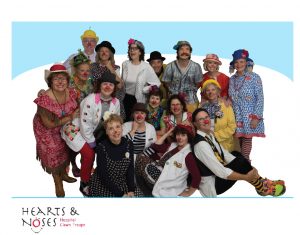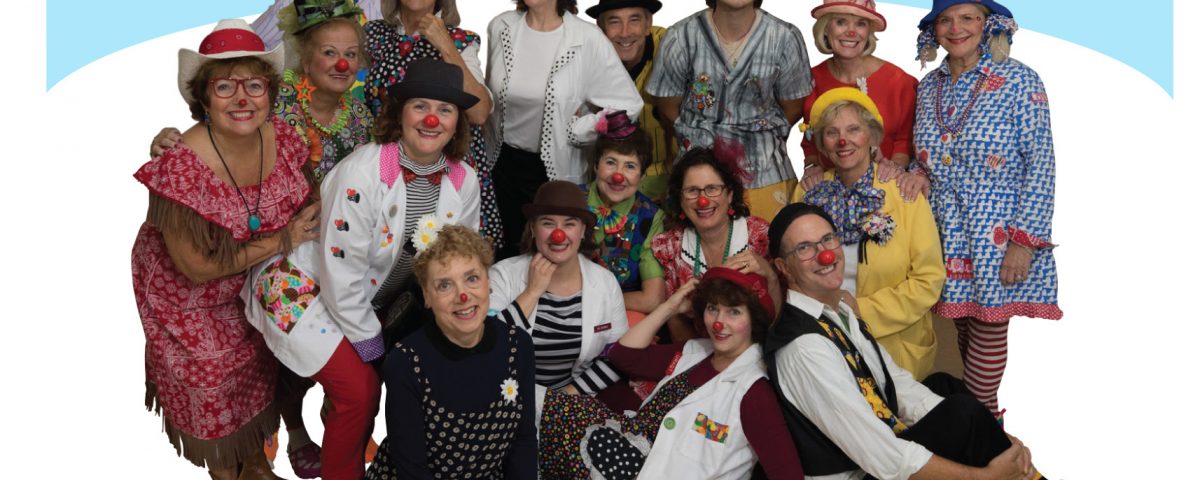 The type of person who makes a great hospital clown is someone who has a natural affinity for relating to children non-judgmentally and open-heartedly, in all kinds of challenging hospital environments.
The type of person who makes a great hospital clown is someone who has a natural affinity for relating to children non-judgmentally and open-heartedly, in all kinds of challenging hospital environments.
Hearts & Noses Clown and Trainer Joyce Friedman says, “This person must also be able to fulfill the Troupe’s annual commitment guidelines including 20 gigs a year, yearly training and meetings, and being responsive to communications. This person must be able to learn the art of hospital clowning: finely-tuned sensitivities, the ability to make the child first always, to get ego out of the way, and to commit to true, honest, joyful engagement.”
“One must be absolutely and authentically present, perceptive and vulnerable,” says Clown Trainer Michael Christensen. “Take the time to look around and feed on that. Pay attention to cues. You need to be able to get physical, emotional, quickly establish trust, play and have fun. You must be yourself, not assuming a character, but looking for the ‘game’ — which is not a normal state.”
“You should be a good hearted, well-intentioned, kind and generous person with some sort of performance experience,” Christensen continues. “It should be a person who understands they’re serving a vulnerable population and that they must filter themselves out of the picture during hospital visits.”
Hearts & Noses Executive Director Cheryl Lekousi says there is no defined checklist for the perfect hospital clown. “We welcome people of all backgrounds and training, but we’re always looking for special talents such as juggling, magic, storytelling, or improvisation skills — tools we use as we build our clown characters,” Lekousi said.






